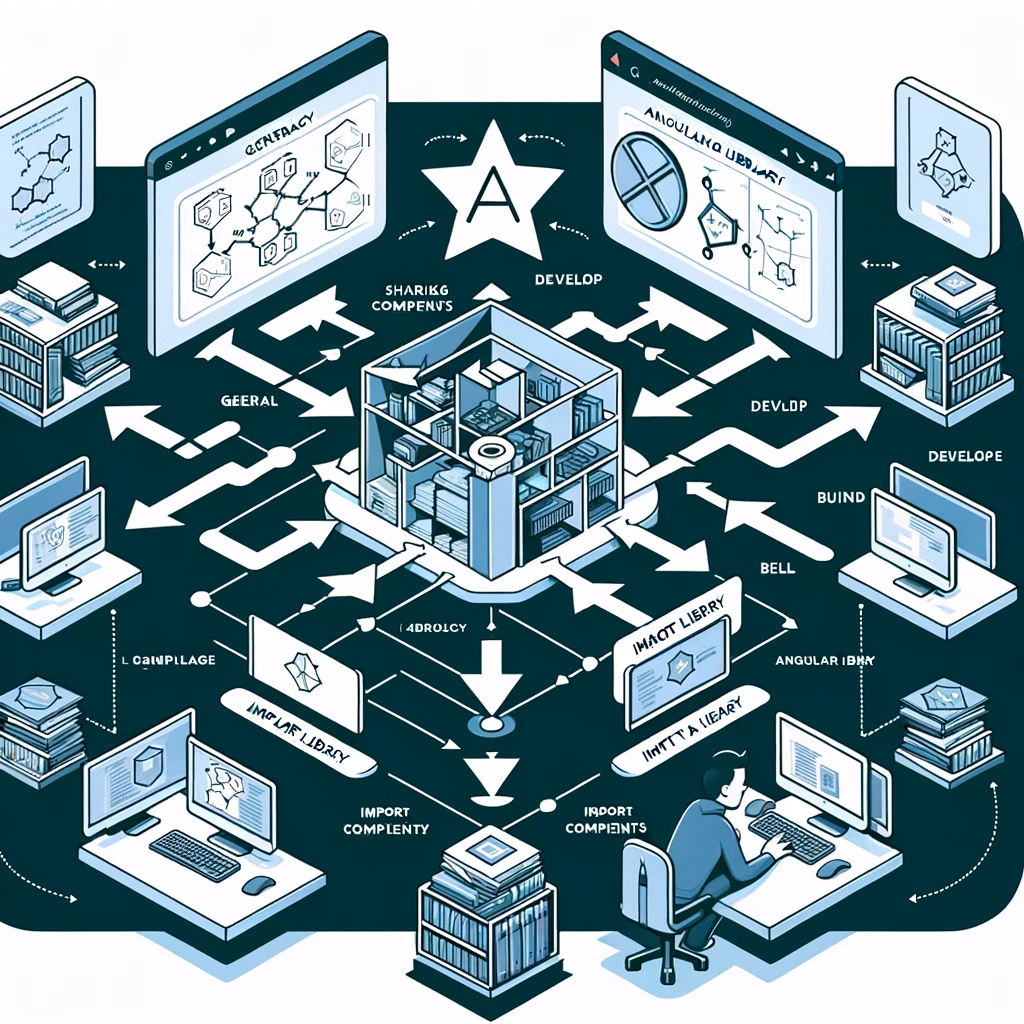Sharing components between different projects in Angular, especially in a monorepo environment, is a common practice that enhances reusability and consistency across projects. Angular provides several methods to share components, services, directives, pipes, and other entities between projects. Here’s how you can do it:
1. Angular Libraries
Creating Angular libraries is the most common and recommended way to share components and other entities across multiple Angular projects. Libraries allow you to build reusable functionality in a separate package, which can then be imported into any Angular project.
Steps to Create and Use an Angular Library:
- Generate a Library: Use the Angular CLI to generate a new library within your workspace:
ng generate library my-shared-library
- Develop the Library: Add components, services, directives, etc., to your library project. You can build and test these entities within the library.
- Build the Library: Compile your library into an Angular package format (APF) that can be imported into other projects:
ng build my-shared-library
- Publish the Library (Optional): If you want to share your library across different projects or teams, you can publish it to a package registry like npm. For internal use, you can skip this step and reference the library locally.
- Import the Library in Other Projects: Add the library to your Angular projects by installing it through npm if published, or by adding a path to the
tsconfig.jsonif it’s locally available. Then, import the needed modules or components in your Angular modules.
2. Shared Modules
For simpler use cases or within a single Angular workspace, you can create a shared module that includes all the components, directives, pipes, and services that you want to reuse across different application modules.
- Create a Shared Module: Generate a new module in your Angular project that will act as a container for shared entities.
ng generate module shared
- Add Shared Components: Develop components, directives, and pipes within this shared module.
- Import Shared Module: Import the shared module into other feature modules where you want to use the shared components or services.
3. Monorepo Setup
For larger scale applications or organizations, setting up a monorepo can be beneficial. A monorepo allows multiple related projects to reside in a single repository, facilitating easier sharing of code, libraries, and components between projects. Tools like Nx can help manage Angular projects in a monorepo, making it easier to share and build dependencies between them.
Best Practices
- Documentation: Ensure your shared components and libraries are well documented, making them easier to use and maintain.
- Versioning: Properly version your libraries if publishing them to a package registry, to manage dependencies and updates in consuming projects.
- Testing: Thoroughly test shared components and libraries to prevent issues from propagating across multiple projects.
Sharing components and other entities using these methods can significantly improve your development workflow, reduce code duplication, and maintain consistency across your Angular projects.

Leave a Reply
You must be logged in to post a comment.